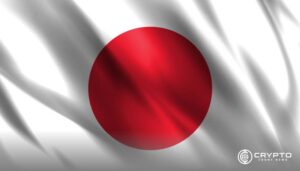- Japan’s strict crypto regulations, intensified post-Mt. Gox and Coincheck hacks shape a unique Web3 landscape focused on corporate involvement.
- Major Japanese corporations like Sony and Softbank are driving Web3 growth, contrasting with the startup-driven model seen elsewhere.
- Japan’s Financial Services Agency (FSA) continues to enforce rigorous standards, impacting international exchanges and leading to regulatory warnings.
After Mt. Gox failed in 2014, Japan’s stance on cryptocurrency regulation underwent a shift. The Japanese government quickly imposed stringent controls on bitcoin providers in the wake of the cyberattack.
The Financial Services Agency (FSA) was granted strict supervision over exchanges under these regulations. After ten years, Japan’s Web3 ecosystem is unique and stands out from other nations because of this proactive attitude.
Corporate Giants Drive Japan’s Web3 Sector
Large corporations are now at the forefront of Japan’s Web3 development. Banking giant Softbank has been particularly active, acquiring a controlling stake in BITPoint in 2022. Softbank also invested in a Web3 venture fund created by Deutsche Bank.
Recently, Sony’s planned launch of the rebranded crypto exchange, S.BLOX, following its acquisition of Whalefin, has further stirred the crypto community. This move underscores Japan’s corporate shift into Web3.
Mai Fujimoto, co-founder of INTMAX, highlighted this trend. Speaking after Japan Blockchain Week, she noted that major corporations are increasingly involved in Web3. Fujimoto pointed out that Sony’s initiative is part of a broader pattern.
According to her, Japan’s Web3 scene contrasts with the startup-centric model seen in other regions. In the U.S., firms like Coinbase and Base Chain have driven Web3 growth. Similarly, Japan is witnessing significant corporate engagement in this space.
Regulatory Challenges and Global Impact
However, Japan’s strict regulations continue to impact international exchanges. Gate.io, for example, is working to assist Japanese users in transitioning to compliant platforms. The exchange plans to launch a program to help customers migrate their transactions.
Additionally, Gate.io will remove Japanese language descriptions and provide necessary information in Japanese during the transition. It will also ensure compliance with FSA regulations.
The Japanese regulatory environment, influenced by past incidents like the Mt. Gox and Coincheck hacks, remains among the strictest globally. The 2014 Mt. Gox hack, resulting in substantial Bitcoin losses, led to ongoing legal battles.
Recently, the 2018 Coincheck hack further accelerated regulatory changes. On June 14, the FSA warned LBank Exchange for operating without proper registration. The FSA’s stringent requirements have led to exits of major players from Japan.
Moreover, the FSA’s increased scrutiny in 2023 saw warnings issued to Bybit, MEXC Global, Bitget, and Bitforex. These exchanges faced criticism for serving Japanese residents without registration. Hence, Japan’s approach to crypto regulation remains a unique and influential model globally.





